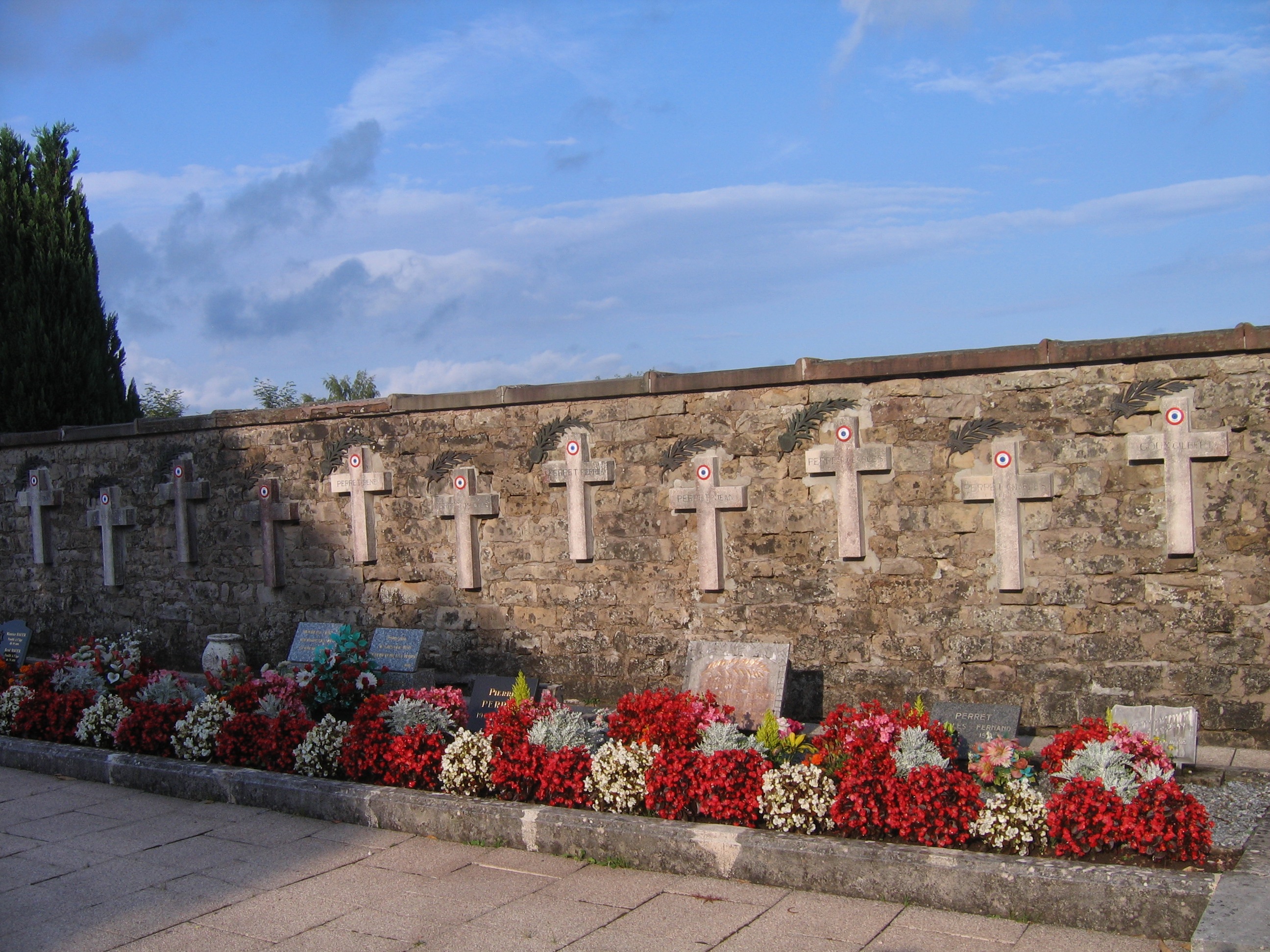Etobon, September 28
The day after the men were marched out of the village, those who remained in Etobon knew nothing of their fate. Were they in Héricourt digging trenches? In Belfort, boarding a train as forced workers for Germany? The Germans continued to shell the village and people were afraid to leave their cellars. Jules Perret ventured to his own home for a short visit, then had to take shelter from the artillery shells.
Thursday, September 28
"There are a lot of us in Remillet’s cellar, all of us ill at ease. It’s too hot. [We think about our dear ones. No little voice says to us “They’re all in the cemetery at Chenebier.”]
"All night long, the shelling continues. Near daybreak I go to see our house. It’s still standing … I hear snoring coming from the kitchen. I opened the door. My flashlight reveals eight Germans sleeping on the floor. And I had locked all the doors and there’s no sign of a break-in. Stepping over the eight bodies, I go through to the barn and find an enormous truck … A little later I come back with Jeanne. Nobody there. They could have gone to sleep in the beds, but they didn’t. They cooked potatoes in the casserole and took one spoonful of lard, only one, for the pot, which wasn’t damaged. They took a few grapes, ate a few dried plums, but left the telephone box, full of money. In the cellar, they only took a few potatoes and didn’t touch the schnapps or the bottles. They were good ones, then.
"I take Victor the colt his bucket of skim milk out to his “chalet.” A shell fell in my rows of apple trees in the Courbe au Prêtre. Just broken branches left! Why do people destroy everything when we could all live so happily?!
"The shells continued to whine, so we go back to Remillet’s cellar. Those good folks have prepared a wonderful supper! Hopefully a boche won’t come in and yell, “Get out!”
"We go from hope to despair. One moment, the noise is so loud that we think our deliverance has arrived. A few hours after, nothing. Our hearts are tired. We keep busy as best we can. I’ll go see my sister, sad about the departure of her Alfred and Samuel. I pour some water on the pig, in the cellar, so he can take a mud bath.
Finally some news of our unlucky ones. They aren’t in Héricourt, like they said, but at Belfort, staying in the barracks of the GMR. They’re working at Essert. Louise Chevillot’s daughter saw them."

 Katherine Douglass
Katherine Douglass